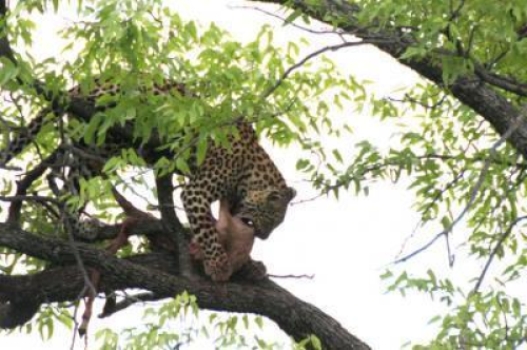Large predators are much more vulnerable than smaller species to environmental changes, such as over-hunting and habitat change, because they have to work so hard to find their next meal, according to a new study.
Scientists matched studies of predator populations to the abundance of their prey and found that the largest species, such as tigers or polar bears, had much greater declines in population due to diminishing food supplies than smaller species, such as weasels or badgers.
The review of studies of eleven species of carnivores by researchers from Durham University and the Zoological Society of London published in the Royal Society journal Biology Letters. It suggests that the vulnerability of larger species may be linked with the high energetic costs of being “big.”
The robustness and large size of these species, which are well suited for hunting large prey, might become a hindrance when times are tough, prey are rare, and individuals have to work harder to find their next meal.
Dr Philip Stephens, from the School of Biological and Biomedical Sciences, Durham University, said: “We found that the largest species exhibited a five to six fold greater decrease in relative abundance in response to a decrease in their prey.
“It’s hard work being a large predator roaming and hunting across extensive areas to find food. The apparent vulnerability of tigers and polar bears to reductions in the availability of prey may be linked to the energetic costs of being a large carnivore.”
The research has important implications for the conservation of our largest carnivore species, which seem to be especially vulnerable to environmental threats and changes in the abundance of prey.
Dr Chris Carbone, Senior Research Fellow, Institute of Zoology, the Zoological Society of London, said: “This study helps us to understand why large carnivores are particularly sensitive to environmental disturbance and why the protection and conservation of their habitat and, in particular, of their prey, are so important to global initiatives to save large carnivores in the wild.”
Dr Phil Stephens added: “The study highlights the need for more detailed study to aid carnivore conservation and shows how much more remains to be understood about the relationship between predators and their prey.”
Source: Science Daily
N.H.khider

